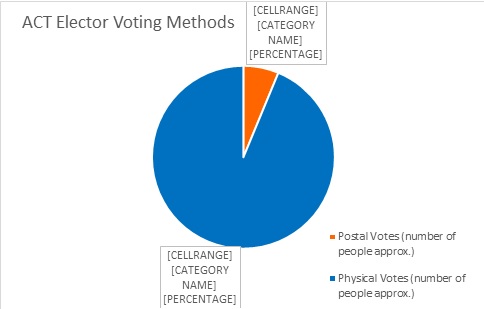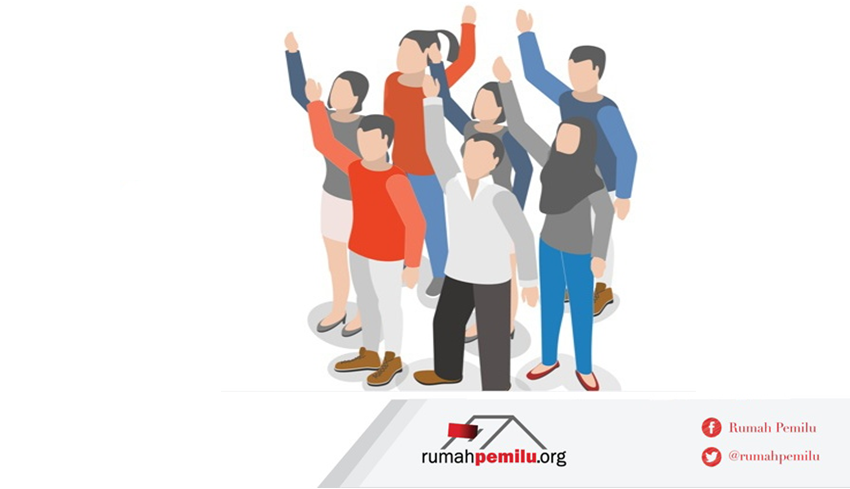When the COVID-19 pandemic arose, countries who were due to hold an election in 2020 faced a unique question, do they postpone their election for the sake of public health, or do they hold the election and try to make it safe, in an effort to maintain their democratic rhythm.
According to the Council on Foreign Relations, over 60 countries decided to postpone their election due to the pandemic.[1] Yet, as pandemic rolled on, more and more decided to go ahead with the elections.
The dozens of countries who held elections had to consider how to make their elections free, safe, fair and secure, despite the pandemic. The Council of Foreign Relations summarises the measure taken by nation states to do this into seven key categories.[2]
- Requiring masks. Research shows that wearing masks significantly reduces the risk of disease transmission. Accordingly, many states required voters to wear masks to polling stations.
- Checking temperatures. Performing temperature checks on voters has also been a common strategy. For example, in South Korea everyone had their temperatures checked before they could vote. Those with a high temperature had to vote in a separate area.
- Social distancing. Many countries, such as Mongolia and Serbia, asked voters to stay at least one metre apart whilst voting to reduce the risk of disease transmission.
- Disinfecting polling places. Scheduled routine cleaning of frequently touched surfaces is common. For example, in Poland polling stations were allowed to “air out” for ten minutes every hour.
- Eliminating shared materials. By eliminating shared materials, states reduce the risk of transmission of the virus via said materials. For example, in France voters were encouraged to bring their own pens.
- Staggering voting hours. Strategies to minimising the number of people voting at the same time have included increasing the number of polling places, recommending early voting and extending voting hours.
Yet, despite these public health measures, the pandemic still had many other effects on elections. According to The Diplomat, some of the consequences included limitations on campaigning by parties in an effort to reduce risk, limitations on voter access (especially for those who had COVID-19), impediments on transparency (due to domestic and international observers being unable to monitor as closely), risk for legitimacy (if less than half of the eligible population votes) and increased administrative and financial costs (to implement the extra health and safety measures).[3]
In October 2020, the Australian Capital Territory (ACT) held a general election for its Legislative assembly. This is the state government, and 25 seats were up for election in the unicameral assembly. [4] The ACT was relatively sheltered from the effects of the pandemic and in total experienced 118 cases with 115 recoveries and 3 lives lost (as of January 2021). [5] Still, political campaigning underwent many changes to keep ACT residents and politicians safe. Politicians were not allowed to go door knocking, hold stalls in malls or shake hands with potential voters. Instead, they called over the phone and put papers in the letterboxes of people’s homes. In addition, polling stations were not allowed to serve food at the Barbeques (BBQs) which often accompany Australian elections.

To limit the gathering of large numbers of people at polling stations ACT residents were encouraged to vote early. The election ran from 28 September to 17 October 2020. This 19-day voting period helped spread voter attendance and at the end of each day of early voting the Elections ACT website published information about the busiest voting times throughout the day. Electors who had a high risk of contracting COVID-19 were encouraged to consider voting at non-peak times.[6]
Voting is compulsory in Australia and in the ACT three mobile polling stations were also provided for eligible electors unable to attend a normal polling place so that they had the opportunity to vote.[7] Overseas electors were encouraged to vote electronically via the newly developed limited electronic voting option to avoid postal delays. [8]
At the polls electors and scrutineers had to social distance, use single use pencils and sanitise their hands and disinfect surfaces after use. [9]The wearing of masks was not mandatory for voters but encouraged while scrutineers and staff were required to wear masks.
Social media plays an ever-increasing role in election campaigns. It is now one of the main platforms that competing candidates and parties use to connect with voters, especially during the restrictions of the pandemic. The ACT’s politicians unanimously introduced legislation which applies to authorised political material containing purported statements of fact which were demonstrably false.[10] This law does not apply to individuals’ social media posts, opinion pieces published in newspapers and publishers who host false advertising. Under the new legislation, people can also complain about political material to the ACT Electoral Commission, which has powers to investigate and ask for the removal of the advertisement and if there is disagreement, the matter can be referred to the courts.
The intention of this law was to stamp out lies quickly before it damages the election and add accountability to politics. However, the ACT also saw a need to balance the freedoms of people also and in order not to impinge upon free speech, such interventions can be applied only where the inaccuracy of information is unambiguous. []
KRITI MAHAJAN & ANNELISE SCHRODER
*Data in the graphic sourced from: Impact of the COVID-19 Pandemic on the 2020 ACT Legislative Assembly Election A special report by the ACT Electoral Commission (May 2020).[11]
[1] https://www.cfr.org/backgrounder/how-countries-are-holding-elections-during-covid-19-pandemic
[2] https://www.cfr.org/backgrounder/how-countries-are-holding-elections-during-covid-19-pandemic
[3] https://thediplomat.com/2020/08/elections-in-a-pandemic-lessons-from-asia/
[4] https://www.accesscanberra.act.gov.au/app/answers/detail/a_id/366/~/act-legislative-assembly
[5] https://www.covid19.act.gov.au/
[6] https://www.elections.act.gov.au/elections_and_voting/2020_legislative_assembly_election/covid-19-and-the-2020-act-election
[7] https://www.elections.act.gov.au/elections_and_voting/2020_legislative_assembly_election/covid-19-and-the-2020-act-election
[8] https://www.elections.act.gov.au/elections_and_voting/2020_legislative_assembly_election/covid-19-and-the-2020-act-election
[9] https://www.elections.act.gov.au/elections_and_voting/2020_legislative_assembly_election/covid-19-and-the-2020-act-election
[10] https://www.abc.net.au/news/2020-08-28/act-bans-false-political-advertising-new-laws/12604096?nw=0
[11] https://www.elections.act.gov.au/__data/assets/pdf_file/0006/1556034/Special-Report-Impact-of-the-COVID-19-Pandemic-on-the-2020-ACT-Legislative-Assembly-Elections-25-May-2020.pdf
 Rumah Pemilu Indonesia Election Portal
Rumah Pemilu Indonesia Election Portal




